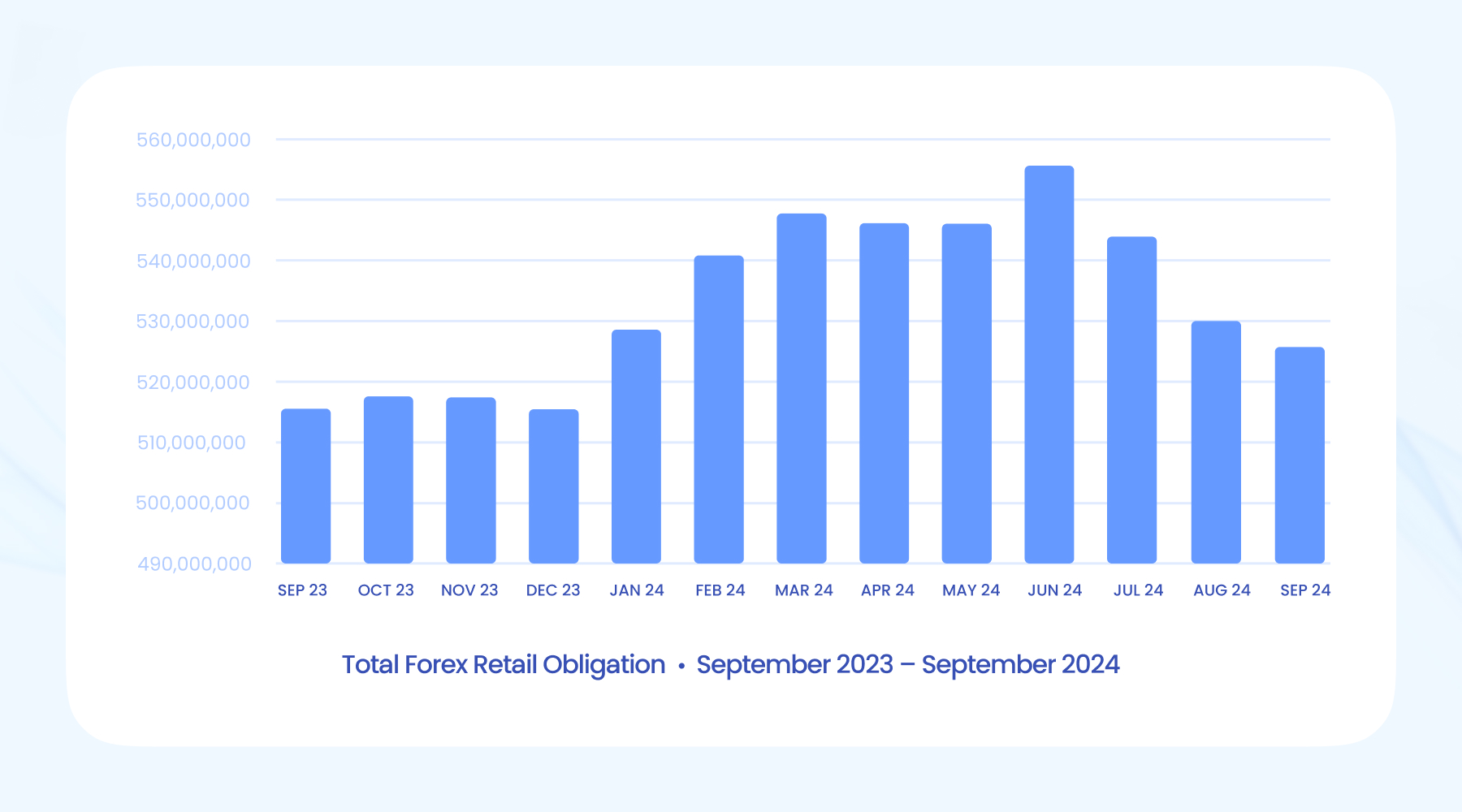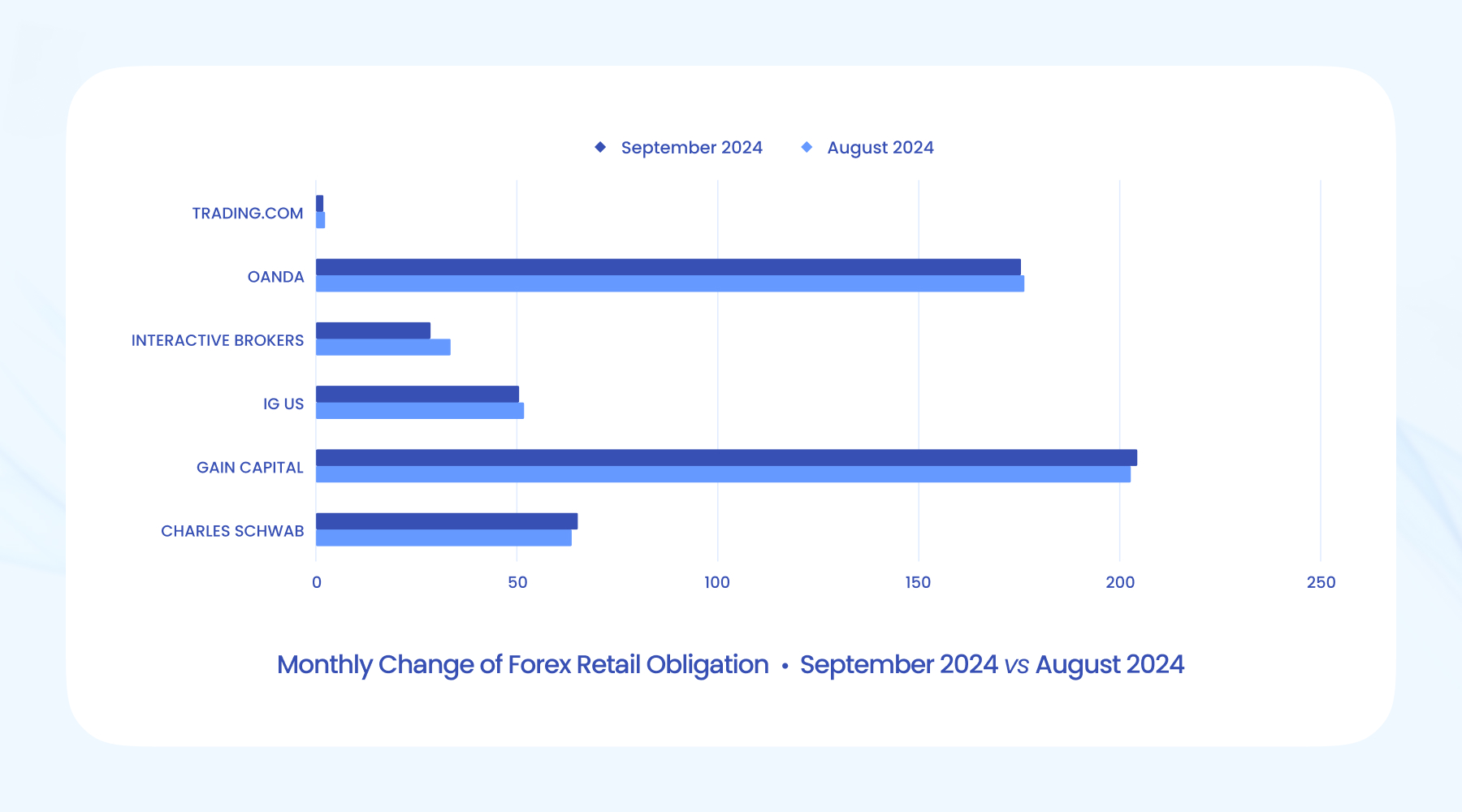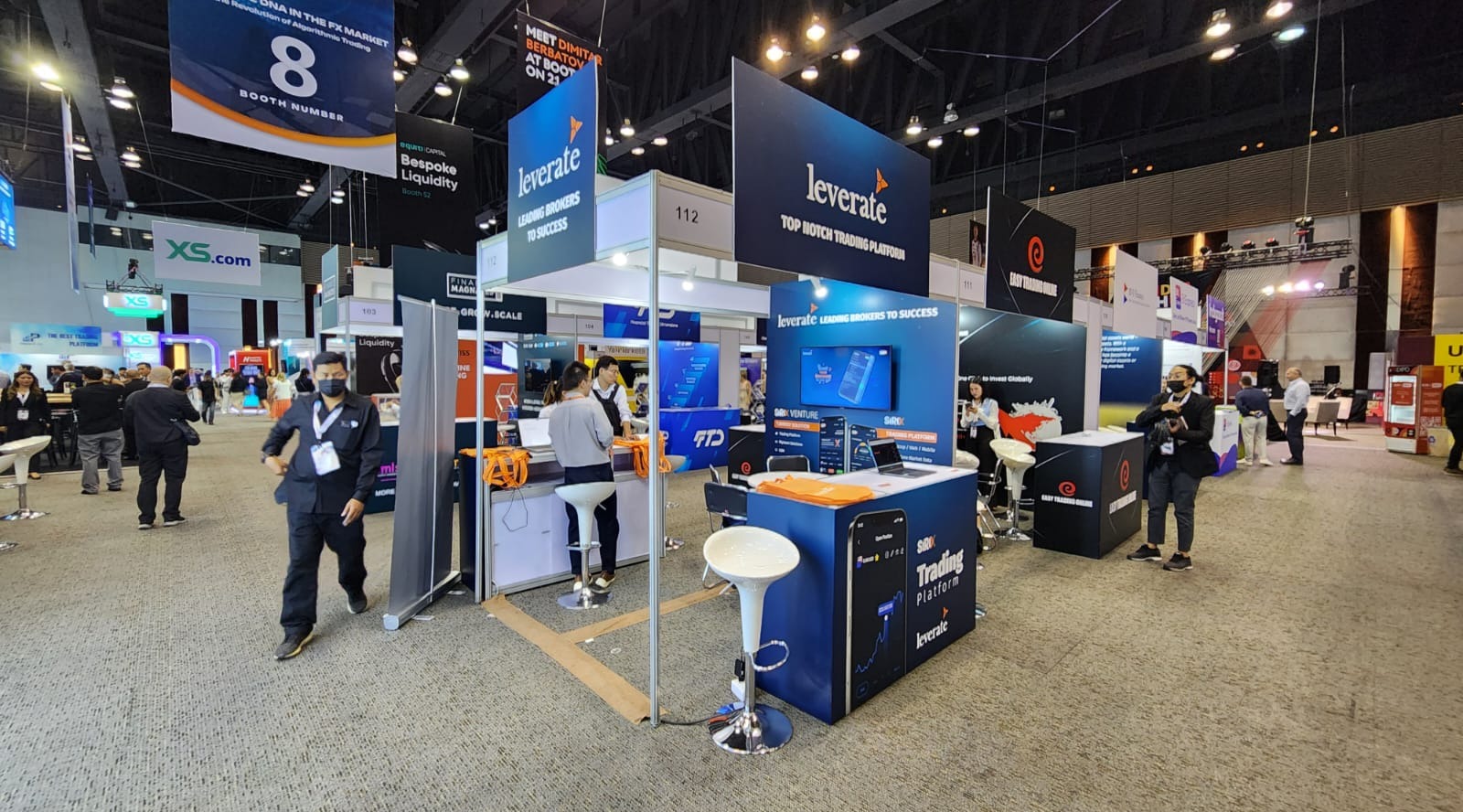The third month of dollar declines and testing 18-month lows has clearly discouraged US investors from seeking investment opportunities in financial markets. According to the latest September 2024 data, retail trader deposits in the country fell for the third consecutive month, losing over 5% from this year's highs.
FX Deposits in the US Hit June Lows
According to the latest report from the Commodity Futures Trading Commission (CFTC) for September 2024, the total value of FX deposits in the US amounted to $526.8 million, falling almost 1% from $530 million reported a month earlier. These are currently the lowest values in three months, though still higher than last year's result of slightly over $515 million.
Although the dollar is performing well now, September told a different story. Just two months ago, its index (DXY) was testing over year-long lows, which clearly affected investor activity.

The decline in investor activity is also confirmed by volume data from the US exchange Cboe, where spot volumes fell below $1 trillion, reaching $981 billion. Although September had one less trading day than August, the average daily volume (ADV) also decreased from nearly $50 billion to $46.7 billion.
Growth Only at Charles Schwab and Gain Capital
Similar to the previous month, only two of the six reporting entities showed growth. Charles Schwab recorded a modest increase in deposits for the second time, growing by 2.5% from $63.7 million to $65.3 million.
In September 2024, Gain Capital also achieved this feat, noting a modest jump of 0.8% from $202.9 million to $204.6 million.

Interactive Brokers experienced the strongest declines both in nominal and percentage terms. The broker's deposits shrank by $5.1 million or over 15%.
Financial Reporting Obligations for US Forex Brokers
The Commodity Futures Trading Commission (CFTC) oversees the financial transparency of Forex brokers in the United States. Specifically, it requires Retail Foreign Exchange Dealers (RFEDs) and Futures Commission Merchants (FCMs) to submit comprehensive financial reports on a monthly basis.
These financial reports must detail critical metrics, including: adjusted net capital, client assets and retail forex obligations.
Retail forex obligations reflect the total assets that FCMs or RFEDs hold on behalf of their clients, factoring in any profits or losses incurred. This requirement applies to all 62 registered RFEDs and FCMs in the U.S., covering firms like Charles Schwab, Gain Capital, IG, Interactive Brokers, OANDA, and Trading.com.
By mandating these disclosures, the CFTC aims to enhance industry transparency and allow for better public insight into the financial health of these firms.
Recently, FCMs have been observed making significant investments in advanced front-end technologies. These upgrades are intended to boost operational efficiency and help these firms stay competitive within the evolving derivatives market.


















